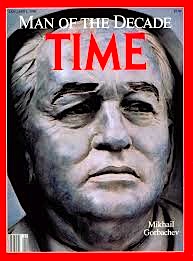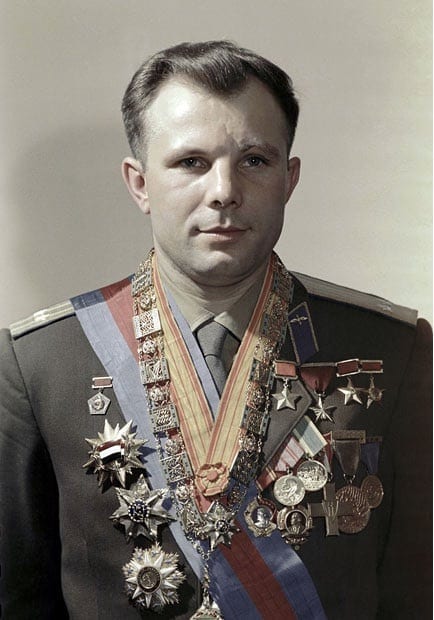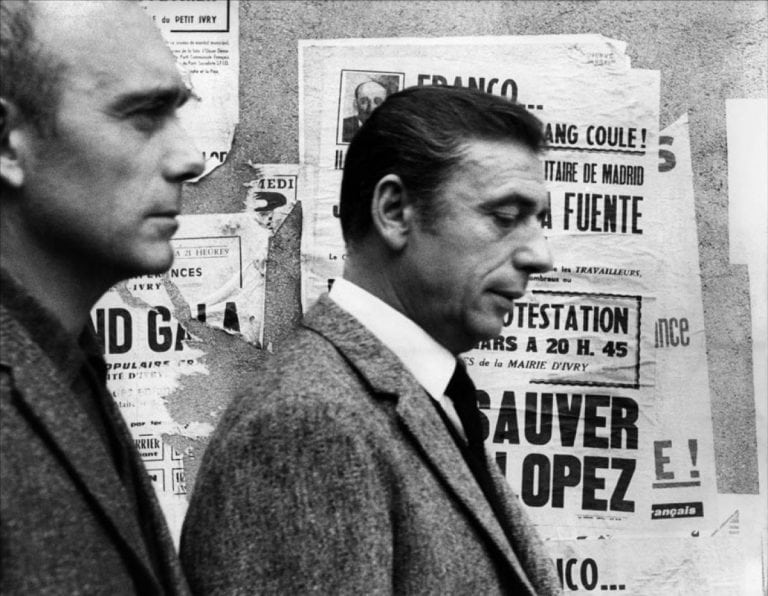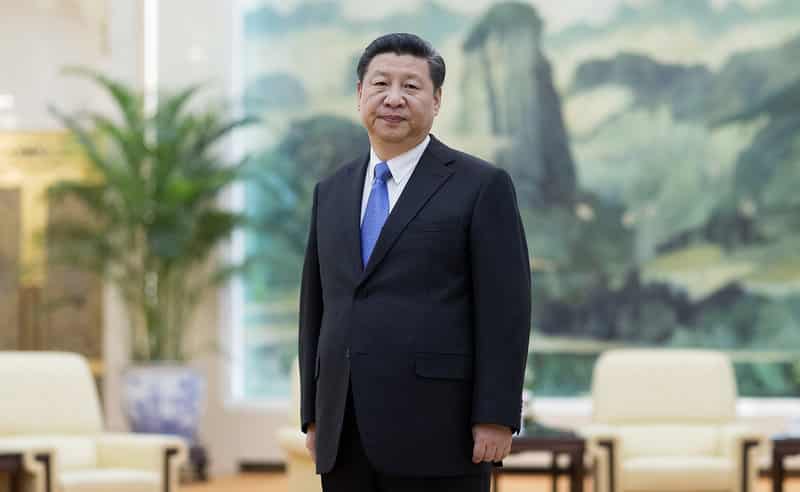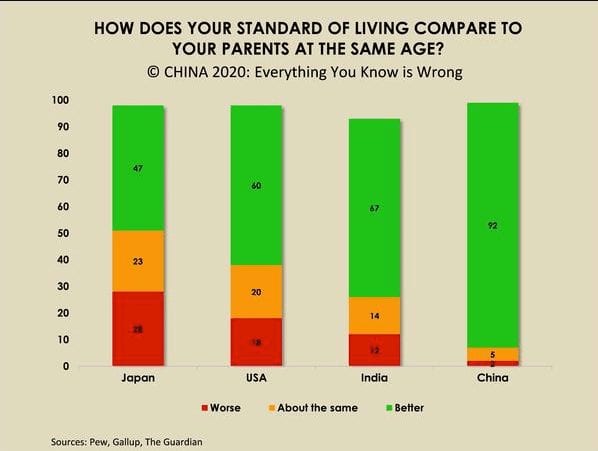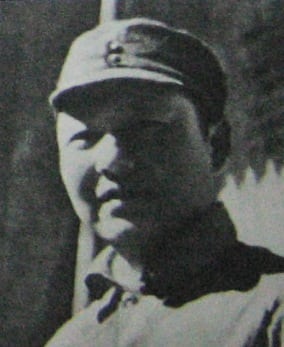Antifa or Antiwar: Leftist Exclusionism Against the Quest for Peace
By DIANA JOHNSTONE • MAY 21, 2018
A crosspost with UNZ.com and Consortium News, because we all oppose imperialism, social injustice and war.
The War Party’s ultra-left wing uses different arguments to arrive at the same conclusions: Syria & Russia are enemies. Instead of practical solutions to real problems, they spread suspicion, distrust & enmity, argues Diana Johnstone.
By Diana Johnstone Special to Consortium News
 CounterPunch has astonished many of its old fans by its current fundraising ad portraying the site as a prime target of Russia hostility. Under the slogan, “We have all the right enemies”, CP portrays itself as a brave little crew being blown off the water by an evil Russian warship out to eliminate “lefty scum.”
CounterPunch has astonished many of its old fans by its current fundraising ad portraying the site as a prime target of Russia hostility. Under the slogan, “We have all the right enemies”, CP portrays itself as a brave little crew being blown off the water by an evil Russian warship out to eliminate “lefty scum.”
Ha Ha Ha, it’s all a joke of course. But it’s a joke that plays into the dangerous, current Russophobia promoted by Clintonite media, the deep state and the War Party. This is a reminder that Russophobia finds a variant in the writing of several prominent CounterPunch contributors.
Yes, CounterPunch continues to publish many good articles, but appears also to be paying its tribute to the establishment narrative.
Put on the defensive by the “fake news” assault against independent media, CP senior editor Jeffrey St Clair seemed to be shaken by Washington Post allegations that he had published articles by a “Russian troll” named Alice Donovan. St Clair never publicly questioned the FBI claim that the ephemeral plagiarist worked for the Kremlin, when she could as well have been planted by the FBI itself or some other agency, precisely in order to embarrass and intimidate the independent website.
The ‘Step Toward Fascism’
The anti-Russian attitude on CP is promoted mainly by the same writers who stigmatize the slightest suggestion of building a broad non-ideological antiwar movement as a step toward “fascism”. This leftist exclusionism goes against the traditions of the website founded by Alexander Cockburn and St Clair, and indeed, CounterPunch was fiercely attacked less than three years ago for its “red-brown”, or “QuerFront” tendencies.
The attack, originating on a German site, warned that leftists who publish on CounterPunch “are unwittingly helping to promote the agenda of the far right”. This article spelled out the Antifa doctrine:
“The idea of a red-brown alliance, or Querfront (German for ‘transversal front’), has been a recurrent motif in far-right thought over the past century. Craving the legitimacy that an alliance with progressive forces can provide, reactionaries seize on ostensibly shared positions, chief amongst them opposition to corrupt élites, to create the impression that progressives could benefit from making common cause with them.
"The exclusionists are less concerned about war with Russia than about the failure of “the left” to be sufficiently critical of Russia – as if a shortage of Russophobia were a real problem these days..."
“Querfront (also known as ‘third position’) propaganda can be highly seductive. Today’s (crypto)-fascist and other hard-right suitors, for example, focus on the commonplace left themes of opposition to war and corporate globalisation, the depredations of the ‘banksters’, civil liberties, and Palestinian solidarity.”
So, you genuine leftists, beware: if someone seems to agree with you, it may be a far righter out to ensnare you into her web.
The article gave advice on how to tell a QuerFront argument from a true leftist one:
“A serious left analysis, say, of US support for Israeli apartheid will start by looking at the documented record of US foreign policy as a whole”, whereas the red-brown, QuerFront third-positions position will say: “A foreign lobby has taken over the US government and media, and is forcing the US to act against ‘American interests’ and ‘American values’, and anyone who says otherwise is a Zionist infiltrator.”
So you mustn’t blame Zionists for Israel, it’s all Washington’s fault.
CounterPunch contributors singled out as dangerous right-wingers included Ralph Nader, Alison Weir, Ron Paul, Gilad Atzmon, Israel Shamir, Paul Craig Roberts and even Alexander Cockburn himself.
In his reply to the article, published on its website, St. Clair seemed to understand exactly where this was coming from.
Caity Gets Counter-Punched
[dropcap]T[/dropcap]hus it was surprising when, last July, CounterPunch ran a whole series of articles attacking independent antiwar blogger Caitlin Johnstone (no relation) for some inconsequential remark about her willingness to join in opposing war even with male supremacist Mike Cernovich. The purists pounced on the incongruity of a hypothetical Caitlin-Cernovich alliance as an opportunity to ridicule the more general principle of a broad single-issue antiwar movement. For this minor heresy, Caitlin Johnstone was denied her right to respond on the site calling itself “the fearless voice of the left”.
On July 11, 2017, Yoav Litvin opened fire in an aggressive style that may have been fortified by his service in the Israeli Defense Force (IDF). Exclusion is a habit one can learn in the IDF. It’s ours, you have no right to be here, get out! That goes for the occupied left territories too. They decide who can stay and who does not belong.
In an interview last year, Litvin prided himself on adopting “the positive aspect of Zionism,” which is “the image of a Jew who is a fighter.” As a result of Jewish experience of persecution, he said, “We can lead a fight with all our brothers and sisters in minority communities.”
Fight against whom? In order to accomplish fundamental change, one needs to build majorities. Jews leading a fight of minorities will go where? Into the dead end of identity politics?
On July 28, CounterPunch published an even more contemptuous piece in the anti-Caitlin series: “Enough Nonsense! The Left Does Not Collaborate with Fascists”, by Eric Draitser. The Draitser rhetorical pose was to claim to prefer being water-boarded rather than having to write about Caitlin’s “doltish” prose, but felt obliged to do so in order to stop the advance of fascism.
Still, he does not easily tire from coming back to the subject.
As moderator of CounterPunch Radio, Draitser has promoted himself as the voice of CP and thus as a leading authority on what is or is not “left”. His role as mentor was demonstrated on his hour-long April 19, 2018 podcast with CP editors St. Clair and Joshua Frank. Draitser set the tone by elaborately ridiculing those who profess to be afraid of World War III. As if nuclear war were anything to worry about! What nonsense, he implied, getting all three to chortle contemptuously at the mention of Caitlin Johnstone, noted for such absurd concerns.
The Hilarity of World War III
Draitser dismissed the danger of World War III with his own original “class analysis”: since Russia and the United States are both ruled by Oligarchs, they have too much in common to reasonably want to throw nuclear missiles at each other. (In other words, what was precisely the Marxist view of imperialist war.) St. Clair hesitated at this, noting the prevalence of irrationality in high spheres. But Draitser dismissed this objection and forged ahead undisturbed, managing what he called a “fun conversation.”
The exclusionists are less concerned about war with Russia than about the failure of “the left” to be sufficiently critical of Russia – as if a shortage of Russophobia were a real problem these days. Shortly before the anti-Caitlin campaign, Litvin interviewed Draitser and their fellow anti-fascist watch dog, Portland State University geography instructor Alexander Reid Ross, who also publishes frequently onCounterPunch.
Draitser complained that: “You see a lot of leftist academics, intellectuals and activists who have in many ways abandoned a real class analysis in favor of a loosely defined politics of opposition. Within this mindset, everything that opposes the United States, Israel, the Saudis or the EU is automatically good and should be supported irrespective of its qualities.”
That simplistic dismissal of the antiwar “mindset” qualifies Draitser for his future place in mainstream media.
Ross’ Red-Brown Chaos
Reid Ross, went him one better. “I see a number of red-brown alliances forming today, particularly in the field of political geography. A number of far-right groups view the modern-day axis of Syria, Iran and Russia as a kind of international counterweight to the North Atlantic Treaty Organization (NATO), which has always been seen by fascist groups as a kind of nemesis led by the nations that defeated the Rome-Berlin axis in 1945.”
This is pure delirium. The nemesis that did the most to defeat the Rome-Berlin axis in 1945 was the Red Army. By conjuring up unidentified “far right groups”, Ross manages to identify Syria, Iran and Russia with the fascist Axis powers in World War II. In reality, NATO has been a magnet for attracting European fascists, from Italy, where they cooperated in clandestine “Gladio” operations to destroy the left, to Ukraine, where genuine fascists are in a “partnership for war” with NATO.
Most Americans have not been well educated in the complexities of modern history. In his Antifa hoodie, Ross can dazzle his audience with a plethora of unfamiliar facts strung together by extremely questionable analysis, unchallenged by genuine experts.
In the Litvin interview, both Draitser and Ross add their small bit to prevailing Western Russophobia by dwelling on Putin’s alleged support for European right-wing groups. Both stress the danger represented by Russian ambitions to establish a Eurasian empire, based on the ideology of Alexander Dugin.
Dugin is a religious reactionary, a tendency that may alarm Jews still haunted by Tsarist pogroms. They are also alarmed by Dugin’s devotion to the thought of German philosopher Martin Heidegger, an ardent believer in Nazism and party member. This is ironic, since Heidegger has been the favorite of a whole line of post-World War II French philosophers, from Sartre to Foucault, considered to be “on the left”. This merely shows that philosophy can be a source of great confusion.
In an Intercept article last September, Ross was quoted as saying that, “Assad is a figure that is central to a realization of Eurasionism,” embodying the idea that, “Russia will lead the world out of a dark age of materialism and toward an ultranationalist rebirth of homogenous ethno-states federated under a heterogeneous spiritual empire.”
It’s hard to see what is so terrifying about such a vague aspiration, with so little chance of realization. But it does provide a new angle for condemning the Russian connection with Syria.
Ideological ‘Iron Curtain’
Ross went so far on March 9 in his vituperations, that the Southern Poverty Law Center, which first published his article on its “Hate Watch” site, felt obliged to withdraw it. The title perfectly echoes the QuerFrontaccusation earlier leveled against CounterPunch: “The Multipolar Spin: how fascists operationalize left-wing resentment.”
In this gem of guilt by association, Ross applied the “six degrees of separation” theory to show that people have been seen with the wrong people and thus must be red-brown. The long list of untouchables included Ray McGovern, Brian Becker, Global Research, Margaret Kimberly of Black Agenda Report, Daniel McAdams, “conspiracy theorist” Vanessa Beeley, and special focus on Max Blumenthal, guilty of having spoken favorably of a “multipolar world.”
The main problem with “multipolarism”, according to Ross, “may be that it supports not the emergence of Russia as a world power but the rise of the Kremlin’s authoritarian conservative political ideology.”
So, we may conclude, we need an ideological Iron Curtain to protect the “liberal leftist” West from Russian “authoritarian” conservatism.
Westernizers vs. Slavophiles
Russian relations with the West have historically been marked by ideological rivalry between Westernizers and Slavophiles. It is obvious that Dugin is no more than the latest prophet of Slavophilia, the idea that Christian Russia is a beacon of virtue to the world.
Historically, Westernizers in Russia have repeatedly gained influence and then lost out, because their overtures to the West were rebuffed on one pretext or another. (The British geopolitical tradition, based on the timeless dictum divide et impera, has traditionally favored policies to keep the continent divided) This merges easily with the Brzezinski doctrine of maintaining separation between Western Europe as a whole and Russia to maintain U.S. global hegemony.
Western rejection of Russia naturally favors a rise of the Slavophiles. It also obliges Russia to look to Eurasia rather than Western Europe. This is happening again.
Vladimir Putin is clearly in the Westernizing tradition. Not an ignorant buffoon like Yeltsin, ready to give away the shop to get a pat on the back from Bill. But rather someone who, as an intelligence agent (yes, KGB people learn a lot) lived in the West, spoke fluent German, and wanted Russia to have a dignified place in Europe – which was the dream of Gorbachev.
But this aspiration has been rudely rebuffed by the United States. Russians who yearned to be part of Europe have been disappointed, humiliated, and finally, angered. All their efforts at friendship have been met with increasingly outlandish portrayals of Russia as “the enemy”.
And yet despite everything, Putin persists in demonstrating his desire to work with Western partners, both by cutting back on military spending and again proposing to keep the pro-Western Dmitry Medvedev as Prime Minister.
If the West were really worried about Duginism, the remedy has always been obvious: improve relations with Putin.
Even Stalin did not really consider it Moscow’s job to convert Western Europe to communism, and it is certain that Putin has no illusion about converting his Western neighbors to Duginism. Russia is not out to change the West, but to make peace and do business, with whoever is willing.
The Russophobic exclusionists really constitute the ultra-left wing of the War Party, which uses different arguments to arrive at the same conclusions: Syria and Russia are enemies. They offer no practical solutions to any real problem, but spread suspicion, distrust and enmity. They discredit the very idea of joining with Russia in peaceful mediation between Israel and Iran, for example. The real thrust of this odd campaign is to minimize the danger of war with Iran, or of direct confrontation with Russia, as Netanyahu continues to drag the United States and its European sidekicks deeper into Middle East wars on behalf of Israel’s regional ambitions.
 Diana Johnstone is a political writer, focusing primarily on European politics and Western foreign policy. She received a Ph.D. at the University of Minnesota and was active in the movement against the Vietnam War. Johnstone was European editor of the U.S. weekly In These Times from 1979 to 1990, and continues to be a correspondent for the publication. She was press officer of the Green group in the European Parliament from 1990 to 1996. Her books include Queen of Chaos: The Misadventures of Hillary Clinton, CounterPunch Books (2016) and Fools’ Crusade: Yugoslavia, NATO and Western Delusions, Pluto Press (2002).
Diana Johnstone is a political writer, focusing primarily on European politics and Western foreign policy. She received a Ph.D. at the University of Minnesota and was active in the movement against the Vietnam War. Johnstone was European editor of the U.S. weekly In These Times from 1979 to 1990, and continues to be a correspondent for the publication. She was press officer of the Green group in the European Parliament from 1990 to 1996. Her books include Queen of Chaos: The Misadventures of Hillary Clinton, CounterPunch Books (2016) and Fools’ Crusade: Yugoslavia, NATO and Western Delusions, Pluto Press (2002).
This work is licensed under a Creative Commons Attribution-NonCommercial 4.0 International License
Things to ponder
While our media prostitutes, many Hollywood celebs, and politicians and opinion shapers make so much noise about the still to be demonstrated damage done by the Russkies to our nonexistent democracy, this is what the sanctimonious US government has done overseas just since the close of World War 2. And this is what we know about. Many other misdeeds are yet to be revealed or documented.
Parting shot—a word from the editors
The Best Definition of Donald Trump We Have Found
 In his zeal to prove to his antagonists in the War Party that he is as bloodthirsty as their champion, Hillary Clinton, and more manly than Barack Obama, Trump seems to have gone “play-crazy” — acting like an unpredictable maniac in order to terrorize the Russians into forcing some kind of dramatic concessions from their Syrian allies, or risk Armageddon.However, the “play-crazy” gambit can only work when the leader is, in real life, a disciplined and intelligent actor, who knows precisely what actual boundaries must not be crossed. That ain’t Donald Trump — a pitifully shallow and ill-disciplined man, emotionally handicapped by obscene privilege and cognitively crippled by white American chauvinism. By pushing Trump into a corner and demanding that he display his most bellicose self, or be ceaselessly mocked as a “puppet” and minion of Russia, a lesser power, the War Party and its media and clandestine services have created a perfect storm of mayhem that may consume us all.— Glen Ford, Editor in Chief, Black Agenda Report
In his zeal to prove to his antagonists in the War Party that he is as bloodthirsty as their champion, Hillary Clinton, and more manly than Barack Obama, Trump seems to have gone “play-crazy” — acting like an unpredictable maniac in order to terrorize the Russians into forcing some kind of dramatic concessions from their Syrian allies, or risk Armageddon.However, the “play-crazy” gambit can only work when the leader is, in real life, a disciplined and intelligent actor, who knows precisely what actual boundaries must not be crossed. That ain’t Donald Trump — a pitifully shallow and ill-disciplined man, emotionally handicapped by obscene privilege and cognitively crippled by white American chauvinism. By pushing Trump into a corner and demanding that he display his most bellicose self, or be ceaselessly mocked as a “puppet” and minion of Russia, a lesser power, the War Party and its media and clandestine services have created a perfect storm of mayhem that may consume us all.— Glen Ford, Editor in Chief, Black Agenda Report
[premium_newsticker id=”211406″]





